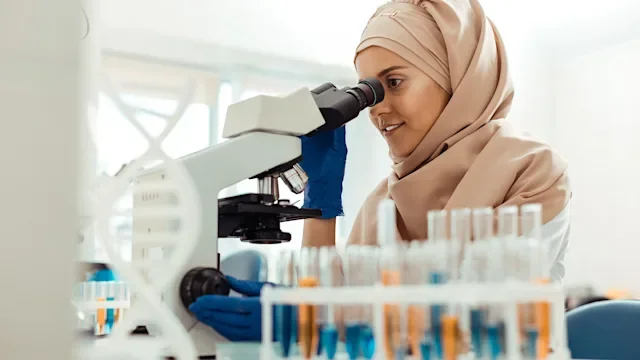Key takeaways:
You can get COVID-19 more than once. You can even get back-to-back infections.
Both infection and vaccination provide immunity against COVID illness. But this immunity goes down over time, which means reinfection still happens.
COVID reinfections may be more mild. But severe illness is still possible.
COVID-19 is here to stay. You or a loved one may have gotten sick with COVID once or even several times. COVID vaccination continues to provide protection against COVID illness. However, breakthrough infections are still possible, even if you’ve gotten your COVID vaccine.
Getting COVID a second (or third or fourth) time is called COVID reinfection. COVID reinfection can happen within several months, so it can feel like you have COVID back-to-back. Here’s what to know about how common it is to get multiple COVID illnesses in quick succession.
How soon can you get COVID again after recovering?
You develop immunity to the COVID virus after a COVID illness. But that immunity only lasts for a few months and is strongest against the COVID variant that you got sick with.
Search and compare options
In the past, new variants of COVID were constantly emerging. So people were more likely to get sick with COVID back-to-back because their previous illness may not have given them strong enough immunity to new variants.
Right now, almost all cases of COVID in the U.S. are caused by the omicron variant. But reinfection still happens. Omicron variants pass easily from person to person, making them more infectious. And omicron variants can also bypass your body’s natural immune response to prior COVID illness.
Data shows that the time between COVID infections ranges from 90 to 650 days, with most reinfections happening after 1 year.
Can you get COVID twice in a month?
This is very unlikely, but in theory it’s possible. People at highest risk for getting a reinfection so quickly are those who have health conditions that weaken their immune system.
If you get COVID twice, are the symptoms the same?
Like many things about COVID, scientists are still learning more about what happens when you get reinfected. Early on in the COVID pandemic, studies showed that people who got reinfected tended to have milder symptoms than they had with their first infection. And some people may have no symptoms at all with reinfection.
More recently, a 2024 study noted that people who got sick with COVID within 3 years of their first COVID illness had similar rates of severe COVID illness. That means people who experienced severe symptoms the first time they had COVID were likely to develop severe symptoms when they got COVID again. And the reverse was also true: People who experienced mild symptoms with their first COVID illness were more likely to report mild symptoms with COVID reinfections.
Struggling with a sore throat from COVID-19? Here are nine remedies that can relieve COVID sore throat.
Did you know COVID can cause dizzy spells? Here’s what researchers know about how COVID triggers dizziness, how common it is, and what you can do about it.
Need a COVID test? Here’s how to choose the most accurate rapid COVID test.
And it seems that some symptoms of COVID may be changing. For example, with recent COVID variants, fever has become less common than it was at the start of the pandemic. Scientists are still working to understand exactly how reinfections affect symptoms, severity, and risk of long COVID.
If you’re not vaccinated, are you at higher risk of getting COVID twice?
The COVID vaccines train your immune system to recognize and fight the virus that causes COVID. They help prevent serious illness, hospitalization, and other complications from COVID. Even if you’ve already had COVID, vaccination helps prevent COVID reinfection and lowers your risk of developing long COVID.
Getting vaccinated can also help protect people around you. By being vaccinated yourself, you’re less likely to spread COVID to others.
You should be fully recovered from your COVID infection before getting the vaccine.
Are new strains of COVID resistant to the current vaccines?
The newest COVID vaccines have been updated to target the latest variants and offer protection where it’s needed most. However, breakthrough infections can still happen.
The COVID virus continues to change and form new variants. This means it can go undetected by your immune system. Plus, the antibodies you make in response to the vaccine also decrease over time.
But if you do get a COVID infection, being vaccinated with the the current vaccine helps prevent severe illness, hospitalization, and death from the virus.
How to prevent COVID reinfection
Preventing COVID reinfection is just as important as preventing the first infection. Reinfection can lead to serious illness for yourself and for others who may have weakened immune systems.
To prevent reinfection with COVID, continue to:
Stay up to date on your COVID vaccines.
Consider wearing a face mask in crowded places, especially if indoors.
Avoid close contact with people who might have COVID.
Wash your hands multiple times a day.
Avoid touching your eyes, nose, and mouth (especially with unwashed hands).
There's no way to completely prevent COVID reinfection. But taking steps to support your immune health will also help. This includes getting plenty of quality sleep, doing regular physical activity, and following a nutritious diet.
The bottom line
You can get infected with COVID multiple times. Both infection and vaccination provide immunity against COVID illness. But this immunity lessens over time, which is why reinfection still happens. To help prevent COVID infection, talk with your healthcare team about COVID vaccination. And support your immune health by getting plenty of quality sleep, doing regular physical activity, and following a nutritious diet.

Why trust our experts?



References
Centers for Disease Control and Prevention. (2024). About handwashing.
Centers for Disease Control and Prevention. (2024). About reinfection.
Centers for Disease Control and Prevention. (2025). Variants and genomic surveillance.
Guedes, A. R., et al. (2023). Reinfection rate in a cohort of healthcare workers over 2 years of the COVID-19 pandemic. Scientific Reports.
Lewis, N., et al. (2022). Effectiveness associated with vaccination after COVID-19 recovery in preventing reinfection. JAMA.
Maier, H. E., et al. (2022). Clinical spectrum of severe acute respiratory syndrome coronavirus 2 infection and protection from symptomatic reinfection. Clinical Infectious Diseases.
National Institutes of Health. (2024). Study suggests reinfections from the virus that causes COVID-19 likely have similar severity as original infection.
National Institutes of Health. (2024). Why protective antibodies fade after COVID-19 vaccines.
Ren, X., et al. (2022). Reinfection in patients with COVID-19: A systematic review. Global Health Research and Policy.
Wilson, C. (2022). How quickly can you catch Covid-19 again? New Scientist.













